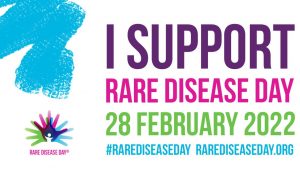This Monday, 28 February, was Rare Disease Day, aimed at “raising awareness and generating change for the 300 million people worldwide living with a rare disease, their families and carers”. Researchers from Monash’s Central Clinical School and School of Public Health and Preventive Medicine joined the cause, sharing the progress of their research and the stories of the patients they work with.
Elsewhere on the precinct, Baker Institute researchers have delved further into the role that stress plays in atrial fibrillation, and will look for new ways to lessen the impact of diabetes on the heart thanks to new funding from Diabetes Australia.

This week, Monash researchers have been working with consumer groups to shine a light on rare diseases.
Alfred Health
Quarantine program involvement to conclude
Alfred Health’s partnership with COVID-19 Quarantine Victoria (CQV) will come to an end as Victoria’s quarantine program transitions to the Mickleham facility.
Read more
Monash University – Central Clinical School
Awareness day brings rare diseases out of the shadows
Today, 28 February, the Central Clinical School’s Community and Researcher Engagement (CCS CaRE) program is participating in a globally celebrated Rare Disease Day, to raise awareness of rare diseases and showcase some of the research that goes into rare diseases now being undertaken across the school.
Read more
Rare disease funds to boost pancreatic and blood cancer studies
Early this month Central Clinical School researchers were awarded funding under the MRFF’s 2021 Rare Cancers, Rare Diseases and Unmet Need (RCRDUN) program. As part of Rare Disease Day today, we asked two CCS researchers – Charles Pilgrim from the Department of Surgery, and Andrew Spencer from the Australian Centre for Blood Diseases – working with rare diseases about the research being funded.
Read more
Monash University – School of Public Health and Preventive Medicine
Working towards treatments for rare diseases
Today marks World Rare Disease Day, a patient-led global initiative working towards equity in social opportunity, healthcare, and access to diagnosis and therapies for people living with a rare disease. An individual rare disease may affect just a handful of people, however, cumulatively, more than 300 million people around the world live with a rare disease.
Read more
Baker Heart and Diabetes Institute
Stress reduction may play role in atrial fibrillation management
Psychological stress is recognised as a contributing factor in initiating and heightening the most common irregular heart rhythm, atrial fibrillation. And while there is a growing body of literature linking stress with a range of cardiovascular diseases there is still much more work to be done in defining this.
Read more
New funding to address diabetes impact on the heart
Baker Institute scientists will investigate novel ways to lessen the negative impact of diabetes on the heart, thanks to newly announced funding from Diabetes Australia.
Read more
Burnet Institute
Fulbright Scholar is Boston-bound
Burnet researcher Michael Traeger has been awarded a prestigious Fulbright Scholarship to support his studies focused on HIV prevention.
Read more
Burnet joins health leaders to showcase latest medical research discoveries
Readers can now keep abreast of cutting-edge developments from medical research institutes across Australia in one place, for the first time.
Read more
Bolstering COVID-19 vaccine uptake among injecting drug users
New research, co-authored by Burnet’s Professor Paul Dietze, reveals almost half of people who inject drugs reported being hesitant to receive the COVID-19 vaccine.
Read more
